
2023 Supplemental Addictions Counseling Fellows

Addictions Counseling Fellows
Meet the 46 addictions counseling master's students named as 2023 NBCC Foundation Supplemental MFP Fellows.
NBCC Foundation Addictions Counseling Fellows
Each MFP addictions counseling master's fellow will receive $15,000 to support their counseling education and to recognize their commitment to underserved and underrepresented communities.
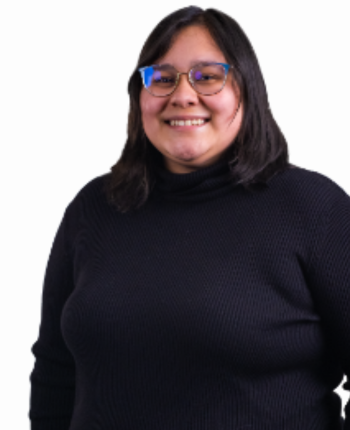
Samantha Avalos (she/her) – Abernathy, Texas
Samantha Avalos is a graduate of Texas Tech University, where she is currently a master’s student in the addiction counseling program at the school’s Health Science Center.
Upon graduation, Samantha intends to work with the Hispanic/Mexican American communities and help provide awareness about addiction and mental health. Her goal is to open an in-patient care facility back home and provide community outreach. She would like to work with the community she lived in as a child. She acknowledges that progress has been made but hopes her fellowship training will provide her with the tools to continue to help. She is excited to join the in-person conferences, learn about addiction face-to-face, and interact and build relationships that will help along her career path. Samantha feels grateful and blessed to help herself and others.
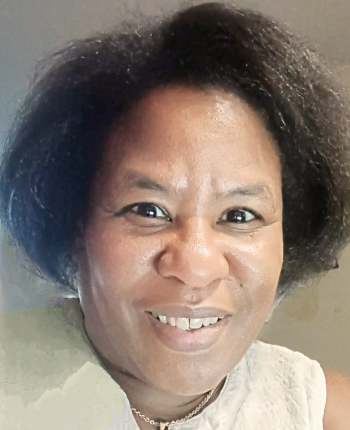
Katheryn Binns (she/her) – St. Paul, Minnesota
Katheryn Binns is a graduate of the University of Minnesota. She is currently a master’s student in the addiction counseling adults program at Metropolitan State University.
Katheryn is a passionate advocate for social justice, focusing on the intersection of race, incarceration, and substance abuse. With a solid commitment to African and Native American communities, she plans to work with adults transitioning from prison, offering support with substance use issues. She aims to create culturally sensitive programs that address root causes and promote rehabilitation. She also seeks to empower individuals to rebuild their lives and advocate for systemic change within the criminal justice system. Outside her studies, she volunteers and engages in cultural exchange activities. Katheryn looks forward to making a difference through compassion and advocacy.
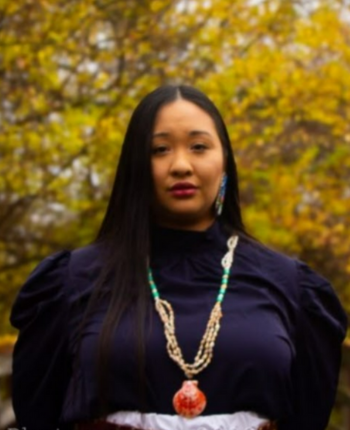
Winona Boado (she/her) – Hiawatha, Kansas
Winona Boado is a graduate of Washburn University and Tohono O'odham Community College. She is currently a master’s student in the Family & Human Services: Addiction Counseling program at Washburn University.
Upon graduation, Winona is dedicated to serving Indigenous families within the four tribal nations of Kansas, offering support through culturally based healing methods. As a land steward, she aims to harness the power of holistic medicines to aid families in their recovery journeys, recognizing the profound connection between the land and healing. This fellowship holds immense significance for her journey. It will enable her to attend counseling conferences and stay abreast of the latest developments and best practices. The fellowship will empower her to establish kinship bonds with other communities and individuals, fostering collaborative networks for shared learning and support. Winona's commitment extends to merging evidence-based practices with cultural sensitivity to better serve Indigenous rural populations. This interdisciplinary approach reflects her holistic understanding of well-being, bridging traditional healing practices with modern therapeutic techniques. By earning this fellowship, she is poised to enhance her skills, expand her network, and contribute significantly to the mental health and resilience of Indigenous communities in Kansas.
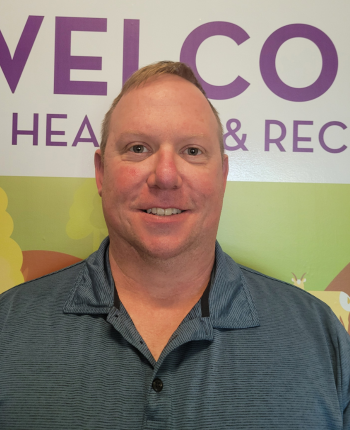
Brian Bretton (he/his) – Clifton, Colorado
Brian Bretton is a graduate of Colorado Christian University, where he is currently a master’s student in the clinical mental health counseling program with an emphasis in substance use disorders.
Upon graduation, Brian intends to continue working in Mesa County, Colorado, serving the community mental health and substance abuse needs of individuals and families. These individuals include veterans and their families, LGBTQIA+, and other underserved populations. Earning this fellowship will help him continue to help change the lives of others positively while further developing his identity as a counselor.
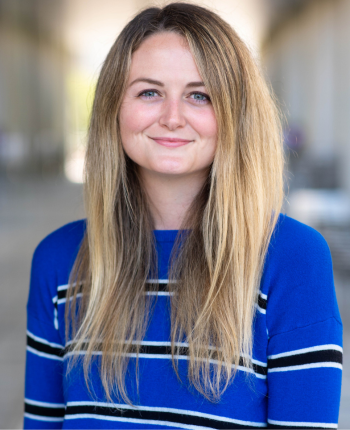
Christina Marion Caira (she/her) – Hollis, New Hampshire
Christina Marion Caira is a graduate of Seton Hall University and Duke University. She is currently a master’s student in the clinical mental health counseling program at the University of Massachusetts- Boston.
Upon graduation, Christina intends to work with adolescents with substance use disorders, specifically those from underserved, marginalized communities. She is passionate about evidence-based treatment and research dissemination for her clients and has spent almost 10 years in academic research. Someday she hopes to open her own adolescent residential treatment program in New England, incorporating wilderness, nature, and adventure therapy with trauma-informed, person-centered cognitive behavioral and existential therapy and motivational interviewing. This fellowship offers further education, mentorship, and networking to aid her in this pursuit.
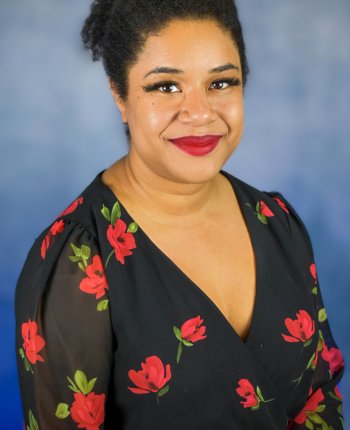
Cheyenne Calderon (she/her) – Denver, Colorado
Cheyenne Calderon is a graduate of Metropolitan State University of Denver, where she is currently a master’s student in the clinical behavioral health program with an emphasis on addictions counseling.
Cheyenne is currently a graduate assistant working to manage and track community and civic engagement projects for MSU Denver using a front-facing platform. She helps with voter engagement and sits on a committee for MSU Denver's common reading program. She holds reading and community involvement close to her heart and this work has been fulfilling for her. Cheyenne has always felt a pull toward helping the underserved, even before she found her passion for counseling. She is looking forward to continuing to learn the intricacies of helping marginalized peoples, specifically through grief work and trauma work. This fellowship will help her receive access to increase her knowledge and skills to help those who are often overlooked. She understands most systems were not built to uplift or foster positive outcomes for marginalized peoples and hopes to find ways to disrupt those systemic norms and build pathways for healing and thriving.
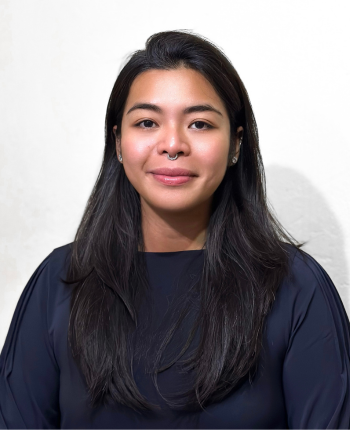
Allana C. Camba (she/her) – Seattle, Washington
Allana C. Camba is a graduate of the University of Washington. She is currently a master’s student in the mental health counseling program at Seattle University.
Upon graduation, Allana intends to work with immigrants, the BIPOC population, those who have substance use challenges, and individuals and families affected by low socioeconomic status. She is committed to empowering individuals through education, community outreach, reshaping systems, and continuous professional development. Allana is an advocate for increased mental health awareness, destigmatizing and humanizing people who use drugs. The Minority Fellowship Program will support her with professional endeavors and missions through workshops, networking, mentorship, and supervision. Her passion for mental health is founded in curiosity, compassion, and enthusiasm, and she hopes to continue her study as a psychedelic researcher and/or a counselor educator.
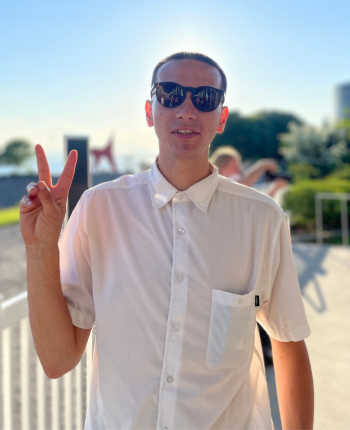
KC Campbell (he/his) – Seattle, Washington
KC Campbell is a graduate of Colorado State University. He is currently a master’s student in the school counseling program at Seattle University.
KC has been a high school teacher in Seattle public schools for the past 5 years. In this role, he has built trusting relationships with students and staff as they navigate the often rigid structures of the school system. Working in South Seattle has allowed KC to work in a diverse, often underserved community. Being part of this fellowship will allow him to build a well-rounded skill set to further support those around him. Learning more about the science behind addiction will give KC the opportunity to bring evidence-based practices into the client’s personal story. This fellowship will also offer a unique opportunity to network and learn from professionals and fellow students committed to serving marginalized communities. Upon graduating, KC plans to continue working with youth from diverse communities in South Seattle within schools or in some other capacity.
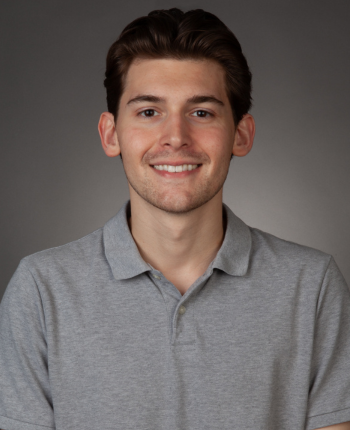
Christopher Campos (he/his) – Orlando, Florida
Christopher Campos is a graduate of the University of Central Florida, where he is currently a master’s student in the clinical mental health counseling program.
After graduation, Christopher plans to work in community mental health, focusing on underserved populations with substance use disorders, co-occurring disorders, and crisis counseling. Working as a behavioral health technician and case manager at a substance-use residential program has motivated him to pursue a career in this field. He plans to obtain his license and become certified as an addiction professional, become a qualified supervisor, and provide clinical supervision to counseling students. This fellowship will enable him to attend counseling conferences, enhance his multicultural competency, and establish his professional identity as a mental health counselor. This opportunity will also allow him to learn evidence-based practices, collaborate with other professionals, and expand his network to better support underserved communities. Christopher looks forward to connecting with peers and mentors and gaining valuable knowledge and insight into the mental health field.
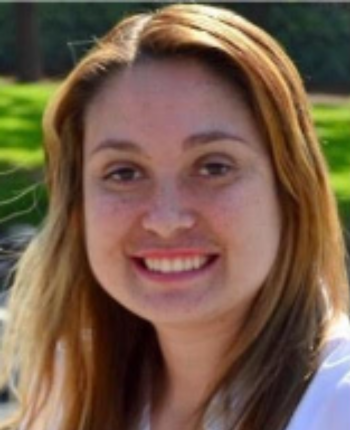
Salina Crespin (she/her) – Long Beach, California
Salina Crespin is a graduate of California State University, Long Beach, and Azusa Pacific University. She is currently a master’s student in the clinical mental health counseling program at California State University, Fullerton.
Salina is in recovery herself and has been a licensed substance abuse counselor for four and a half years. Upon graduation, she plans to continue to work with individuals, couples, and families from underserved populations, especially those who struggle with substance use. This fellowship will allow Salina to connect with other counselors and therapists who practice trauma-informed care and help learn more about the reasons some individuals use substances to cope with traumatic events.
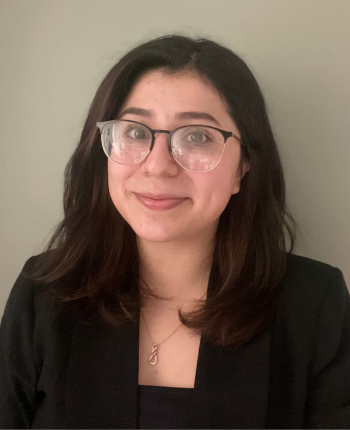
Virginia Cruz Victorio (she/her) – Greenbrier, Tennessee
Virginia Cruz Victorio is a graduate of Union College. She is currently a master’s student in the clinical mental health counseling program at Lipscomb University.
After graduation, Virginia plans to focus her work on expanding the mental health services available to Spanish-speaking and rural communities in middle Tennessee. She also wants to help bridge the gap between medical and mental health services. She understands the importance of holistic care and wants to help create a more comprehensive system for individuals dealing with addiction and mental health issues.
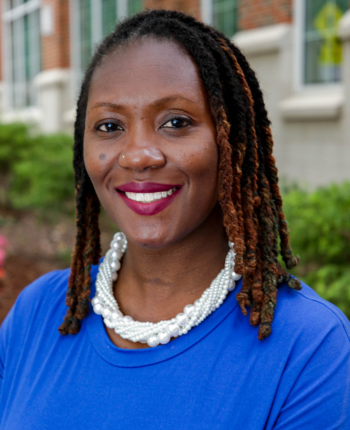
Nikki M. Curry (she/her) – Charlotte, North Carolina
Nikki M. Curry is a graduate of North Carolina Central University and Strayer University. She is currently a master’s student in the clinical mental health counseling program at The Chicago School of Professional Psychology.
As a professional organizer specialist for over 15 years, Nikki understands the profound link between organization and mental well-being. Driven by this connection, she empowers clients challenged by chronic disorganization to unlock their potential through practical solutions and positive habit-building. Her expertise lies in supporting individuals with ADHD, chronic disorganization, hoarding tendencies, and those navigating aging, creating thriving environments tailored to their specific needs. Due to her passion for holistic wellness, she transitioned from public school education to mental health counseling. Her additional interests in grief counseling, geriatric counseling, and human sexuality reflect her desire to address diverse needs. A native of Charlotte, North Carolina, she finds solace in nature, yoga, and anything artistic when not serving her clients. She continues to volunteer with several organizations in her community. She has always been drawn to helping others, which resonates with her mission to provide honest, holistic experiences; advocate for awareness in under-discussed mental health spaces; and offer unwavering support throughout clients’ journeys. Nikki believes everyone deserves to find their rhythm where organization and well-being are in harmony.
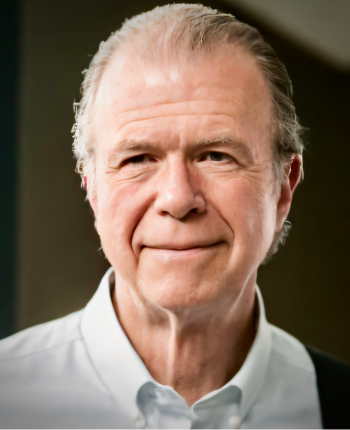
William Richard Donahue, Jr. (he/his) – Pinckney, Michigan
William Richard Donahue, Jr., is a graduate of Wayne State University and United Theological Seminary. He is currently a master’s student in the addiction counseling integrated recovery for co-occurring disorders program at Hazelden Betty Ford Graduate School.
Upon graduation, Bill intends to work with addiction and co-occurring mental disorders with underserved and underrepresented populations, especially those based on race, ethnicity, and age, who are elders or are part of the armed services and emergency service personnel. This fellowship will provide a strong professional identity with specialties in Eye Movement Desensitization and Reprocessing, trauma-focused therapy, and person-centered group therapy. Trauma takes on many forms, such as racial trauma, Adverse Childhood Experiences, and post-traumatic stress disorder. As a therapist equipped to advocate for addiction and co-occurring mental disorders with evidence-based best practices, he believes it is essential for those who benefit from White privilege to step forward and deal with their racial, ethnic, and cultural privilege and implicit racism. Bill believes that being a therapist is his “next right thing” and a way to celebrate recovery in his daily search for his highest power.
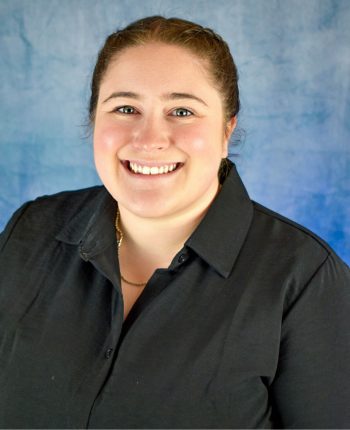
Alexandra Florence (she/her) – Kansas City, Missouri
Alexandra Florence is a graduate of Park University. She is currently a master’s student in the addictions counseling program at Carlow University.
Alexandra is a dedicated professional counseling student who is passionate about serving active-duty service members. Based on her experience as a military spouse and her background working with the Navy and the Department of Veterans Affairs, she is committed to making a meaningful impact on the lives of those who have served. She is excited about the prospect of expanding her expertise in research and evaluation throughout her fellowship year. Alexandra aims to develop advanced skills in critically evaluating research related to addiction and contribute to the field through conducting research and program evaluation.
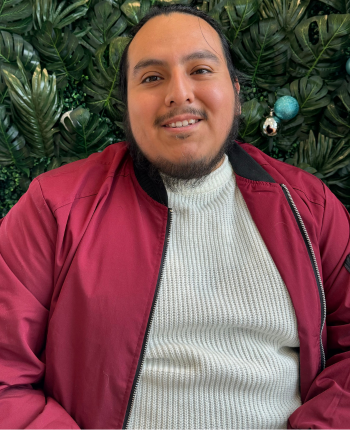
Alfred Flores-Mendoza (he/his) – Los Angeles, California
Alfred Flores-Mendoza is a graduate of the University of Minnesota Twin Cities, where he is currently a master’s student in the integrated behavioral health (IBH) program with a minor in infant and early childhood mental health.
Alfred is currently a Licensed Alcohol and Drug Counselor (LADC) and is working toward becoming a Licensed Professional Clinical Counselor (LPCC). Upon graduation, Alfred intends to work with those with criminal involvement and help those seeking a second chance. Along with this population, having previously worked with shelters and been engaged in community work, he hopes to serve people experiencing homelessness and those diagnosed with substance use disorder. He believes that to grow, second opportunities should be given to those who wish to better themselves. His long-term goal is to work toward providing trauma-centered work and helping those regain control of their lives and begin to live again. There has long been a focus on the Western White-person perspective. His goal is to bring more awareness to intergenerational trauma and support those whose voices have been silenced, which is why he hopes to work with Latinx first-generation and second-generation clients. Finally, Alfred hopes to be trained in Eye Movement Desensitization and Reprocessing and eventually return to school for his PsyD in clinical psychology.
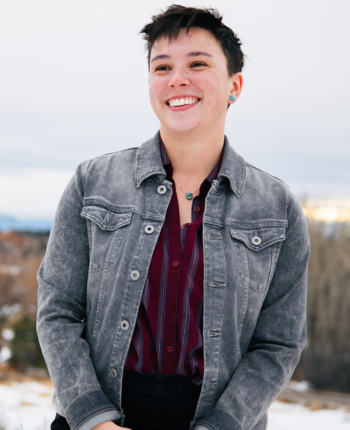
Tia Goebel (she/they) – Bozeman, Montana
Tia Goebel is a graduate of Montana State University, where she is currently a master’s student in the clinical mental health counseling program.
Tia intends to work with individuals and their loved ones impacted by the criminal punishment system in Southwest Montana. She believes in fostering the conditions for people to take back power over their own lives. Long term, Tia is passionate about building alternative ways to hold and repair harm, ultimately diverting people from the criminal punishment system and preventing recidivism. This fellowship provides the opportunity to learn more about community-led restorative and transformative justice efforts and connect with other counselors and leaders.
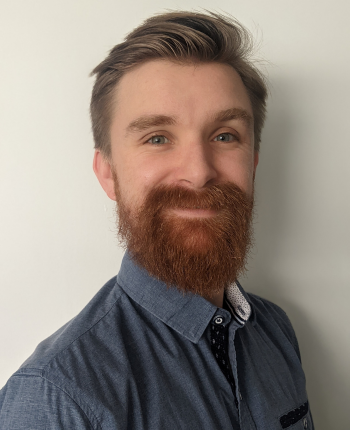
Jacob Hill (he/his) – Durham, North Carolina
Jacob Hill is a graduate of The School of the Art Institute of Chicago and Santa Fe Community College. He is currently a master’s student in the clinical mental health counseling program at The Chicago School of Professional Psychology.
Upon graduation, Jacob intends to serve communities disproportionately facing challenges with substance use. Taking a closer look at the systemic factors that promote and perpetuate substance use disorders within the Indigenous communities, he aims to improve the quality of recovery services, supporting individuals impacted by addiction while working to address the resource inequities motivating their use. Approaching addiction as both a disorder and environmental symptom, Jacob hopes to expand the scope of counseling practice when working with cases of substance use and abuse, embracing a more holistic perspective of recovery and addiction that contends historical stigma. This fellowship is the next step in this process, allowing him the opportunity to collaborate and engage with like-minded peers through a variety of counseling conferences to establish a stronger professional identity as a counselor, learning about new evidence-based practices and cultivating the skills to better support underserved populations during his professional counseling journey.
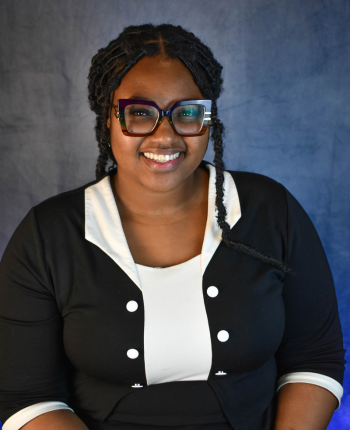
Erica Hollins (she/they) – Washington, D.C
Erica Hollins is a graduate of Davidson College. She is currently a master’s student in the clinical mental health counseling program at The Chicago School of Professional Psychology.
Having lived in the Washington, D.C., area for over 8 years, Erica's passion for mental health care, particularly addiction counseling, is rooted in personal experience and observation. She was inspired to work in addictions after witnessing many high achievers grappling with life’s challenges through substance misuse. Her own transformative experience at a dual-diagnosis treatment center ignited her unwavering dedication to improving access to addictions and mental health treatment for communities of color. As a first-generation college student she is driven to break down barriers and challenge the status quo on current mental health care research and practice. Her ultimate educational goal is to obtain a doctorate in clinical forensic psychology from The Chicago School of Professional Psychology. With the support of this fellowship, Erica is eager to receive mentorship and guidance from established professionals and peers in the field. Her story is one of resilience, dedication, and an unwavering commitment to making a tangible difference in the lives of those battling addiction, particularly high-achieving women of color.
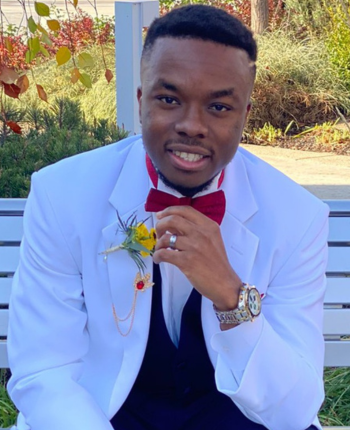
Ehigie Destiny Igbineweka (he/his) – Twin Falls, Idaho
Ehigie Destiny Igbineweka is a graduate of Idaho State University. He is currently a master’s student in the clinical mental health counseling program at Walden University.
Upon graduation, Ehigie aspires to work with refugees and clients in rural Idaho who are grappling with trauma and addiction. Recognizing the interconnectedness of trauma and addiction, he aims to leverage his skills and talents to make a meaningful impact on the lives of those he serves. With a strong commitment to addressing the complex challenges faced by these individuals, he envisions contributing to their healing and well-being through dedicated and empathetic counseling. Utilizing the connections cultivated during the fellowship, he aims to establish valuable networks, collaborate with mentors, and advance his chosen counseling strategies and interventions. Through this proactive approach, Ehigie envisions enhancing his professional skills and contributing effectively to the field, ultimately providing more impactful support to those he serves.
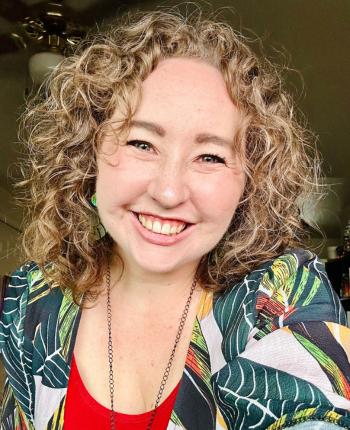
Madeleine Jewell – Boise, Idaho
Madeleine Jewell is a graduate of Boise State University. Madeleine is currently a master’s student in the clinical mental health counseling program at Idaho State University.
Upon graduation, Madeleine intends to work with people in the queer community, as well as people who are neurodiverse. She is passionate about serving underrepresented and underserved communities, especially in areas where access to competent, celebratory care is often lacking and where care has not traditionally or historically included the voices, experiences, and perspectives of people in those communities and holding those identities. This fellowship opens up many opportunities for Madeleine to develop her professional identity, expand and hone her training, and connect with other counselors, all of which she anticipates will impact her work with clients, advocacy efforts, and the counseling field as she continues in her practice.
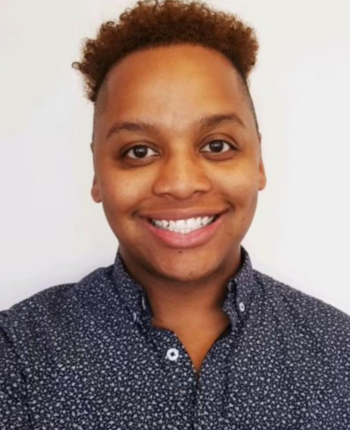
Delwin Luis Johnson (he/his) – Chicago, Illinois
Delwin Luis Johnson is a graduate of Kaplan University. He is currently a master’s student in the clinical mental health counseling program at Walden University.
Delwin is proud to represent his Puerto Rican and African American ancestry and was born and raised in Chicago, Illinois. He plans to advocate for everyone who has mental health issues, especially those who are underrepresented such as the Latinx, Black, and LGBTQIA+ communities, along with those who have experienced addiction, trauma, and abuse, while providing a pathway toward healing. He firmly believes in self-care, building boundaries, and maintaining healthy relationships. Delwin is always willing to support his community and campaign for social justice while walking with discernment in adversity. He is grateful to have been selected for the NBCC Minority Fellowship Program and recognizes the responsibility that follows. He is looking forward to learning, evolving, and changing the world one client at a time.
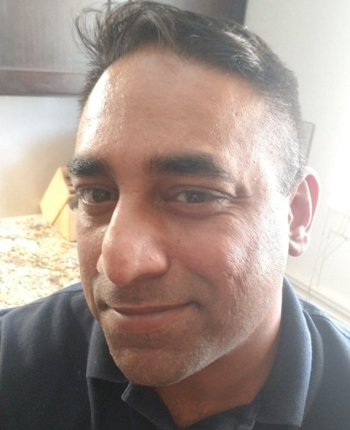
Ajay Kapoor (he/his) – San Antonio, Texas
Ajay Kapoor is a graduate of the University of Texas at San Antonio and Austin Community College. He is currently a master’s student in the clinical mental health counseling program at Texas A&M University-San Antonio.
Ajay has an ardent proclivity toward providing mental health and addiction counseling to the people who live on the fringes of society. He gravitates to those who recognize themselves as LGBTQQIP2SAA, artistic, individualistic, willful, and colorfully rebellious. It is a great responsibility and honor to scoff at society’s rage and indifference by learning to love oneself. As a first-generation immigrant, he understands how the American dream can become a nightmare. He believes we can win over pain and suffering through a healing process, fellowship, and inclusivity through compassionate discourse and partake in the divine through acts of service. Postgraduation, Ajay intends to work with the LGBTQQIP2SAA, marginalized, and ethnically diverse youth and young adults and their families, prioritizing addiction and mental health counseling. The fellowship will provide him with a transformative opportunity, offering connections and resources for continued education and career advancement, including mentorship, training, and professional development.
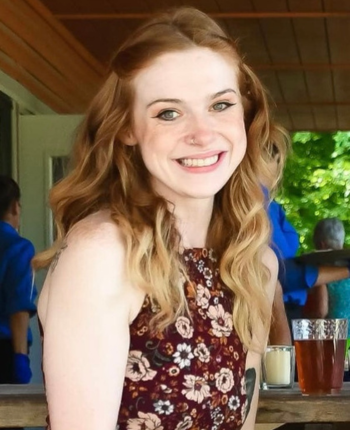
Genevieve Elyse Lavelle (she/her) – Lakewood, Ohio
Genevieve Elyse Lavelle is a graduate of Cleveland State University, where she is currently a master’s student in the clinical mental health and chemical dependency counseling program.
Upon graduation, Genevieve intends to work with families and youth struggling with substance abuse. She would like to work with youth within the gender and sexual/affectional minority spectrum and families within rural settings. Focusing on the root of generational trauma and healing wounds through schema therapy and analytical psychology is her interest when working with families. When working with youth, she focuses on prevention rather than remediation. Her personal experience with addiction and working with at-risk youth has allowed her to build rapport with those struggling with substance use and adjust her skills based on individual needs. Earning this fellowship allows her access to education that will help her become a more competent counselor and advocate for those in underserved communities.
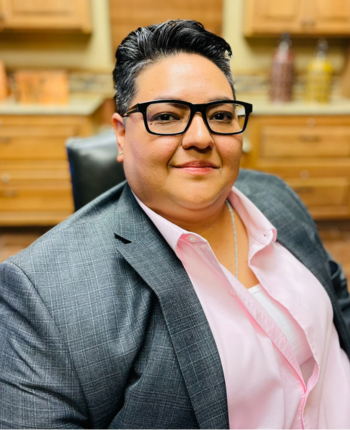
Brenda Lozoya (she/her) – Hobbs, New Mexico
Brenda Lozoya is a graduate of the University of New Mexico and New Mexico Junior College. She is currently a master’s student in the clinical mental health counseling program at the University of the Southwest.
Upon graduation, Brenda intends to continue working at a rural community mental health center in her hometown of Hobbs, New Mexico. She plans to work with the Latinx community and provide counseling in English and Spanish. She will continue to work with people who are often underrepresented based on their race, ethnicity, and socioeconomic status and those living in rural areas, where mental health services are typically lacking. Earning this fellowship will allow her to attend counseling conferences to establish a stronger professional identity, learn evidence-based practices to better serve underserved populations, and advocate for the counseling profession.
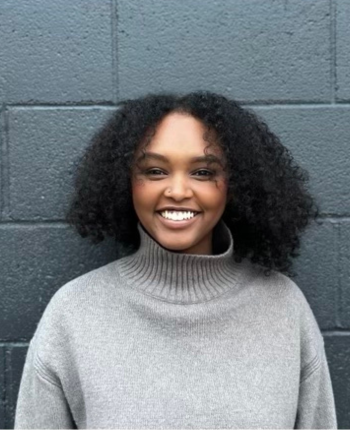
Lamia Mohamed (she/her) – Minneapolis, Minnesota
Lamia Mohamed is a graduate of Metropolitan State University, where she is currently a master’s student in the co-occurring disorders recovery counseling program.
Upon graduating, Lamia aspires to establish a multicultural mental health and substance use clinic dedicated to underserved communities of all ages and backgrounds. She aims to offer affordable care to families and individuals facing daunting challenges, hoping to shift their mindset from the barriers and stigma they’ve encountered to a future filled with possibilities and increased awareness. Earning this fellowship will enable her to attend counseling conferences, establish a stronger professional identity as a future counselor, learn evidence-based practices to serve underserved populations better, and advocate for improving mental health services within the community.
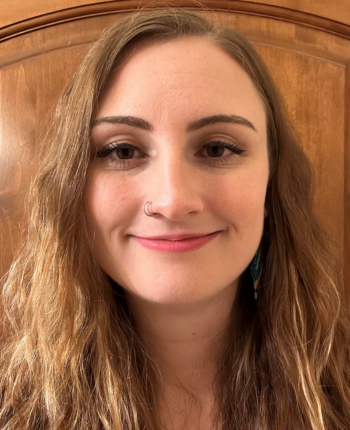
Hannah Molloy (she/her) – Denver, Colorado
Hannah Molloy is a graduate of the University of Nevada, Reno. She is currently a master’s student in the clinical behavioral health program with an emphasis in addiction counseling at Metropolitan State University of Denver.
Upon graduation, Hannah will obtain dual licensure as a Licensed Addiction Counselor and a Licensed Professional Counselor in Colorado. She plans to work with underrepresented populations from diverse backgrounds and has a passion for helping the LGBTQIA2S+ and neurodivergent communities with the hardships of substance use, mental health, and trauma. Furthermore, she plans to open a private practice that specializes in substance use and co-occurring mental health disorders, harm reduction, complex trauma, and the specific needs of marginalized communities. Her practice will utilize multiple evidence-based therapeutic modalities, as she believes a treatment plan should be based on an individual’s specific needs. Additionally, she plans to become certified in Eye Movement Desensitization and Reprocessing to add somatic methods to her practice. She is currently a member of the LGBTQIA2S+ NAADAC Clinical Standards Committee, which aims to educate the board of directors, NAADAC members, counselors, treatment agencies, and the public on the specific needs of the LGBTQIA2S+ community by developing practice standards for substance use services. This fellowship will allow Hannah to further her development and education as a counselor by obtaining mentorship from previous Fellows, attending/presenting at conferences, and advocating for the mental health and substance use field.
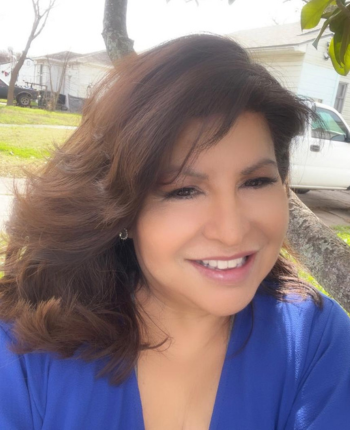
Belinda Montgomery (she/her) – University Place, Washington
Belinda Montgomery is a graduate of the University of Washington and Seattle University. She is currently a master’s student in the addiction counseling program at Grand Canyon University.
After graduation, Belinda plans to continue providing services to the Latinx and Native American communities, specifically working with recent immigrants coping with immigration barriers, social isolation, and employment insecurities and the impact these circumstances have upon Latino day laborers’ overuse of alcohol as a coping mechanism. She is passionate about advocacy, rural work, and helping individuals recognize their potential and worth.
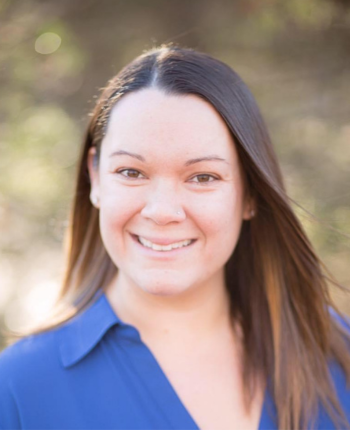
Kelly Ann Murphy Andruk (she/her) – Manchester, Connecticut
Kelly Ann Murphy Andruk is a graduate of Walden University, where she is currently a master’s student in the clinical mental health counseling program.
Kelly has a clinical background working with families in the perinatal period, with certifications in childbirth, early childhood, and lactation. She has an educational background in early childhood and public health that she has applied to her current work in birth and lactation trauma. She has studied under the Arizona Trauma Institute for Clinical Trauma Specialists in pregnancy as well as addiction. Her current program will support her work with families in recovery. Kelly’s current public health project revolves around the chemical-dependent community. Her program strives to create equity of care through a trauma-informed lens that will bridge the gap in disparity to access by connecting local community services to the hospitals themselves through the implementation of a continual care model. Upon graduation, she will apply the fellowship’s training to establish a structured and permanent collaboration between mental health resources within the community and the hospitals that serve them. Kelly strives to assist these families with the opportunity to experience evidence-based care that is not only comprehensive but more importantly is guided by inclusive language that is cohesive to the other clinicians with whom these families are working.
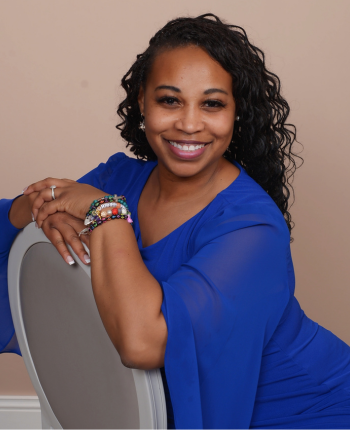
Ariesha Murray (she/her) – Oklahoma City, Oklahoma
Ariesha Murray is a graduate of the University of Central Oklahoma and Liberty Univeristy. She is currently a master’s student in the rehabilitation counseling program at Langston University.
Upon graduation, Ariesha intends to work with low-income and underserved adolescents, specifically those with addiction, substance abuse, and mental wellness challenges. She would also like to work with transition-age youth who are experiencing homelessness. Earning this fellowship will allow her to attend counseling conferences to establish a stronger professional identity as a counselor, learn evidence-based practices to better serve underserved populations, and advocate for the counseling profession as a Black woman.
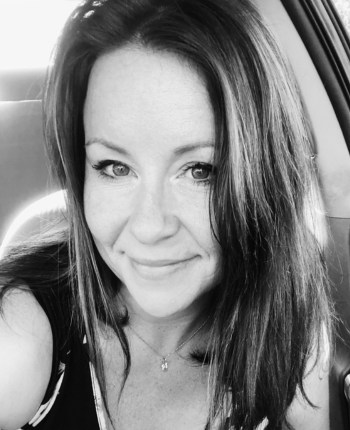
April May Parker (she/her) – Portland, Oregon
April May Parker is a graduate of Warner Pacific University. She is currently a master’s student in the clinical mental health counseling program at George Fox University.
April is a dedicated and compassionate professional who exemplifies resilience, compassion, positive regard, excellence, courage, and self-awareness. Residing in Portland, Oregon, and being a mother of two, she actively contributes to the community through her 12 years of experience in the human service field in addiction treatment, expressing her passion for this impactful work. Her professional goal is to implement higher learning to enhance community involvement and foster healing for women in their recovery journey, especially when working with marginalized and vulnerable individuals. Her passion is working with pregnant women and children. This fellowship provides a valuable opportunity for her to connect with like-minded professionals and expand her knowledge and skills in the addiction field. April intends to approach treatment holistically, incorporating insights from neuroscience and contributing to community healing.
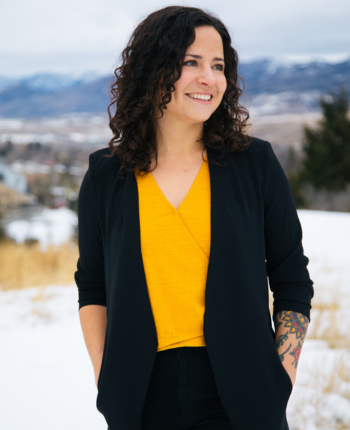
Alexandra Celia Pasin (she/her) – Bozeman, Montana
Alexandra Celia Pasin is a graduate of the University of Vermont. She is currently a master’s student in the marriage, couples, and family counseling program at Montana State University.
Alex is a passionate student with the goal of becoming a Licensed Clinical Professional Counselor and a Licensed Addictions Counselor. During her internship and upon graduation, she intends to provide services for individuals, children, couples, and families while attending to the LGBTQIA2S+ population and the rapidly growing Hispanic population in Montana. Alex is eager to continue to understand the impacts of marginalization and intergenerational trauma, specifically in connection with substance use disorders and suicide. As a crisis counselor for the National Suicide Prevention Lifeline, she is acutely aware of the high occurrence of suicide and addiction in Montana. She also bears witness to the gaps in access to mental health resources, especially for marginalized communities in this rural landscape. Through this fellowship, Alex looks forward to gaining knowledge and experience that will help her serve these underserved populations in the forms of advocacy, counseling, and improving resources.
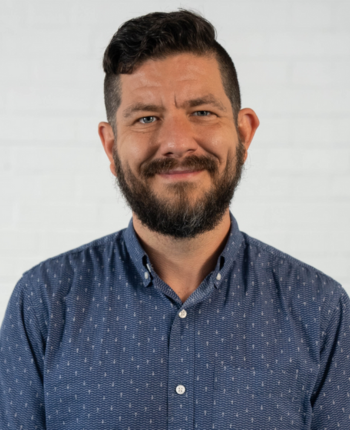
Timothy Power (he/his) – St. Louis, Missouri
Timothy Power is a graduate of the University of Missouri. He is currently a master’s student in the clinical counseling program at Central Methodist University.
Timothy is passionate about helping individuals recover from addiction and reclaim their lives. He currently works as a pastor of outreach at Salem United Methodist Church in St. Louis, Missouri, where he provides resources for housing insecure individuals through their Haven Street ministry. This has brought him into relationships with many individuals struggling with addiction and mental illness. Timothy believes that the future of addiction treatment lies not in punitive approaches but in a wellness model that invites struggling people to consider making changes toward living a healthier more fulfilling life when they are ready. As a person of faith and active clergy, he is also interested in healing some of the damage done to minorities within high-control spiritual communities. Many LGBTQIA+ youth have been rejected by their families and churches and cope with this trauma by using alcohol and narcotics. Timothy hopes to research the intersection of religious trauma and addiction with the goal of helping to educate religious leaders and communities on how to prevent such harm.
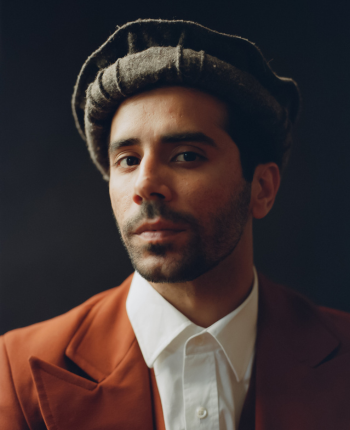
Rafay Rashid (he/his) – Providence, Rhode Island
Rafay Rashid is a graduate of the State University of New York at Purchase College. He is currently a master’s student in the clinical mental health counseling program at Rhode Island College.
Rafay intends to continue working with the substance abuse population, particularly individuals from South Asian and Muslim communities who have faced stigma when it comes to mental health and addiction. He has a background in the arts and music and is interested in unique and creative ways to approach the intersection of art and recovery-based therapeutic practice. Earning this fellowship will allow Rashid to attend conferences and connect with other counselors in training to develop his professional identity and strengthen his commitment to serving underserved populations upon graduation.
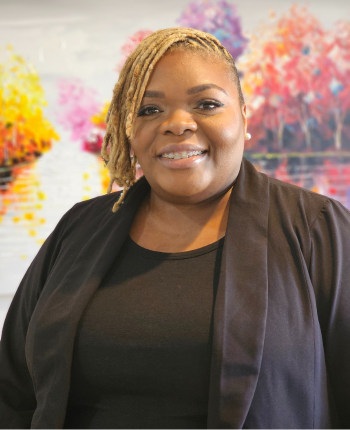
Sharonda C. Rozier (she/her) – McRae, Georgia
Sharonda C. Rozier is a graduate of Valdosta State University. She is currently a master’s student in the co-occurring disorders counseling program at Hazelden Betty Ford Graduate School.
Sharonda lives in the metro Atlanta area and works as a clinical assessment counselor who serves as the frontline for entry into treatment for persons with co-occurring disorders. Upon graduation, she plans to pursue her license as a professional counselor with a specialization in working with those living with a substance use disorder. She also plans to pursue a specialization to work with those living with trauma. Sharonda plans to continue working with underserved populations with co-occurring disorders. Earning this fellowship will allow her to continue developing her counseling identity and learning from and with amazing and passionate professionals in the profession.
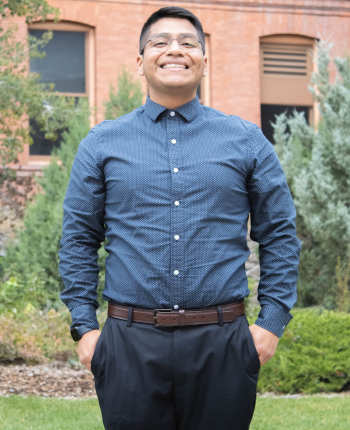
Pablo Santibañez (he/his) – Belgrade, Montana
Pablo Santibañez is a graduate of the University of California, Irvine. He is currently a master’s student in the clinical mental health counseling program at Montana State University.
Upon graduation, Pablo hopes to work with the addiction population within the Gallatin Valley area of Montana. He also hopes to work with the recent migrant arrivals in the area to serve their needs in a culturally sensitive manner. Earning this fellowship will allow Pablo to attend conferences and learn from other Hispanic counselors about how to approach his work in establishing himself as a brown, male, Spanish-speaking professional within the community.
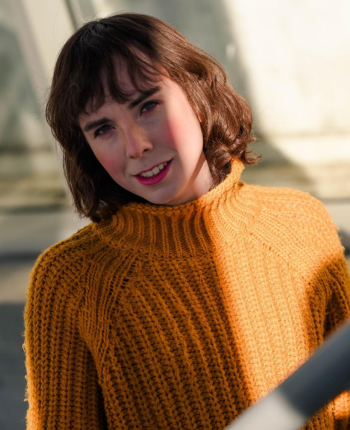
“Ulli” Ulika Scout (she/her) – Knoxville, Tennessee
“Ulli” Ulika Scout is a graduate of Emory University. She is currently a master’s student in the clinical mental health counseling program at the University of Tennessee, Knoxville.
Inspired by her background as a massage therapist specializing in myofascial release, Ulli developed a keen interest in the mind-body connection in emotional and trauma processing. This led her to a holistic approach, combining somatics and mindfulness to aid clients in releasing stored pain. At Tennessee Valley Recovery, she develops psychoeducational group counseling for dual-diagnosis clients. Her unique counseling approach, shaped by her experiences in massage and community organizing, integrates physical awareness with consciousness-raising and advocacy techniques. This fellowship will allow her to deepen her community wellness expertise, particularly focusing on gender-affirming care for trans adults in recovery settings and addressing internalized heterosexism in queer and trans communities through the study of lateral aggression interventions. Beyond her clinical role, Ulli is committed to community advocacy. Drawing from her background in direct action and consciousness-raising, she plans to leverage her counseling skills to support social justice initiatives. She also aims to integrate mental health support into broader movements, enriching her practice with a deep understanding of community needs and social dynamics.
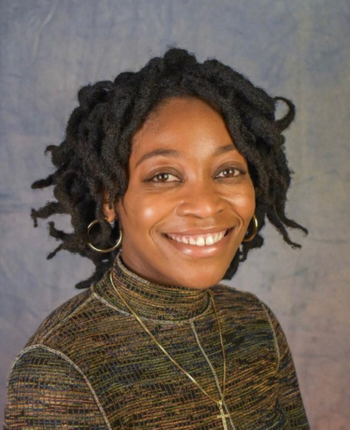
Keanna Siles (she/her) – Fort Washington, Maryland
Keanna Siles is a graduate of Frostburg State University. She is currently a master’s student in the clinical mental health counseling program at Bowie State University.
Keanna is a Certified Alcohol and Drug Counselor and currently serves individuals living with co-occurring disorders. She is a member of the Maryland Counseling Association (MCA) and the Maryland Association for Multicultural Counseling and Development (MAMCD). Upon completion of her graduate program, she plans to provide mental health counseling services to adolescents and adults within the addictions field in underserved communities. Keanna is dedicated and eager to build relationships within the counseling profession to promote cultural competency and implement the multicultural approach. This fellowship will aid in the creation and expansion of her professional network and mentorship within the counseling profession.
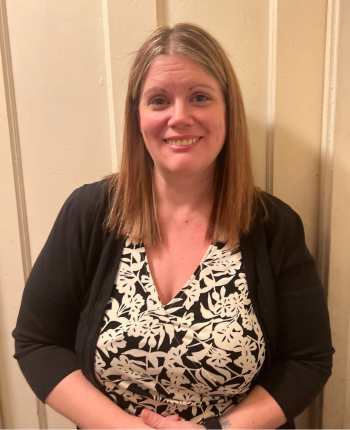
Jennifer Smith-Lane (she/her) – Cincinnati, Ohio
Jennifer Smith-Lane is a graduate of the University of Arizona Global Campus. She is currently a master’s student in the mental health counseling program at Walden University.
Jennifer has been a case manager for a court-ordered dual-diagnosis women’s treatment program in Cincinnati, Ohio, for 10 years. Her passion is in addiction counseling. She is a licensed Chemical Dependency Counselor Assistant. Upon graduation, she intends to move into a counselor role within her current agency. Jennifer is committed to serving populations within the criminal justice system and those with co-occurring disorders. She is honored to receive this fellowship and the opportunity to learn to better serve underserved populations and advocate for change.
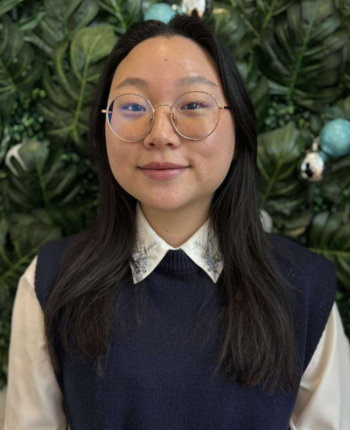
Sehee Snead (she/her) – Fridley, Minnesota
Sehee Snead is a graduate of Georgia State University. She is currently a master’s student in the integrated behavioral health (IBH) program with a minor in infant and early childhood mental health at the University of Minnesota Twin Cities.
Upon graduation, Sehee intends to work toward becoming a Licensed Alcohol and Drug Counseling (LADC) and Licensed Professional Clinical Counselor (LPCC). She will work with youth struggling with co-occurring disorders, especially within communities where there is limited access to and knowledge of mental health resources. She hopes to decrease the stigma around accessing help for substance use and mental health within the Asian American and Pacific Islander community, in which she understands the silent struggle firsthand. Earning this fellowship will allow her opportunities to develop her clinical style and to gain knowledge to better serve underserved populations. Sehee hopes to explore additional ways to provide a more accessible, fun, and unique approach to care that does not follow traditional forms of therapy.
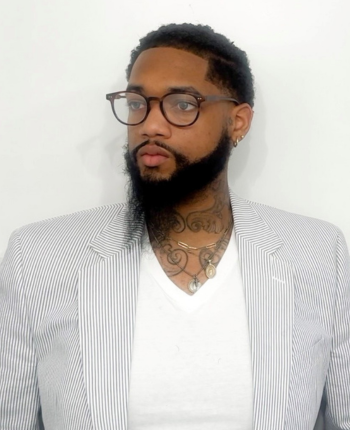
Khalei L. Suol (he/his) – Greensboro, North Carolina
Khalei L. Suol is a graduate of South University. He is currently a master’s student in the clinical mental health counseling program at North Carolina A&T State University.
Post graduation, Khalei Suol will work with African American males through the lens of trauma and addiction. Heterosexual African American men are underrepresented in current research and have been identified as one of the lowest demographics seeking counseling services. Thus, the intent of his fellowship and research will be to understand how the lived life experiences of this population have forwarded environments that normalize negative coping mechanisms, addictive modalities, and self-sabotaging traits while rejecting positive help-seeking ways to cope and self-validate.
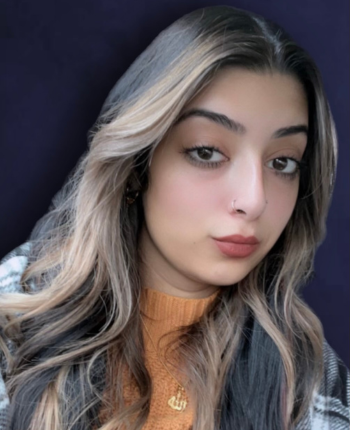
Mishal Tarik (she/her) – Albany, New York
Mishal Tarik is a graduate of The College of Saint Rose, where she is currently a master’s student in the clinical mental health counseling program.
After graduation, Mishal intends to work with those who face co-occurring discrepancies with substance abuse disorder. She is a first-generation American who understands the importance of advancing racial equity within treatment for individuals experiencing substance abuse disorder. Earning this fellowship will allow Mishal to expand her cultural competence through counseling conferences and educational training to better serve underserved populations.
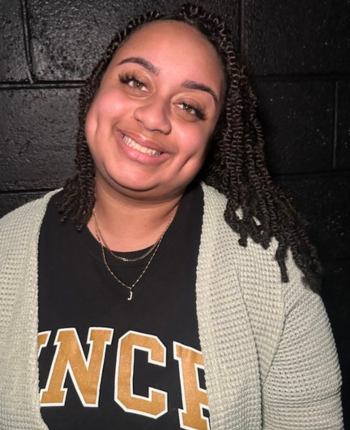
Jasmine B. Toles (she/her) – Fayetteville, North Carolina
Jasmine B. Toles is a graduate of the University of North Carolina at Pembroke, where she is currently a master’s student in the clinical mental health counseling program.
Jasmine works for a federally funded program that supports first-generation, low-income, and/or students who may have disabilities. Upon graduation, she intends to work in a setting that serves underrepresented populations where she hopes to promote awareness and provide a safe place for clients. Her long-term goal is to work with veterans who have post-traumatic stress disorder. Coming from a military background, Jasmine understands the lack of support that veterans sometimes receive, and she wants to be that change, ensuring that all veterans feel heard and understood. The fellowship will allow her to strengthen her professional identity as a counselor and learn ways to better serve and advocate for underserved populations.
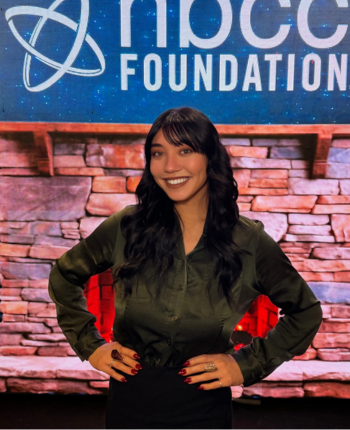
Kaylin Weed (she/her) – Salt Lake City, Utah
Kaylin Weed is a graduate of Utah Tech University. She is currently a master’s student in the clinical mental health counseling program at Westminster University.
As a counselor-in-training dedicated to serving diverse populations in Utah, Kaylin’s passion lies in addressing mental health barriers and substance use disorder within Indigenous communities. She is committed to understanding the unique historical and social contexts that shape individuals’ experiences. Her training emphasizes collaboration with tribal leaders and elders to integrate traditional healing practices into therapeutic approaches, fostering a holistic and culturally sensitive environment. Through this work, Kaylin aspires to contribute to the resilience and well-being of the community, promoting lasting, positive change and empowering individuals to navigate their mental health journey with dignity and strength. Honored to be awarded this fellowship, she believes this opportunity will profoundly enhance her professional development and enable her to undergo specialized training, equipping her with advanced skills in culturally responsive interventions and trauma-informed care.
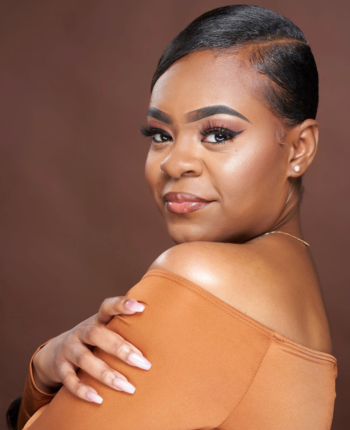
Taja’Raie Wesley (she/her) – Omaha, Nebraska
Taja’Raie Wesley is a graduate of the University of Nebraska at Omaha, where she is currently a master’s student in the clinical mental health and addictions program.
Taja’Raie intends to advocate and work with minorities, predominantly African Americans, in North Omaha. She is passionate about helping individuals in this community because she grew up in this poverty-stricken area and is aware of the lack of resources and education surrounding mental health and addiction. Taja’Raie wants to provide counseling services to adults in underserved communities to assist them with healing and finding their purpose, peace, and happiness. She plans to work for a nonprofit organization in the community that provides affordable services for those seeking assistance. In her free time, she collaborates with outreach programs to provide information, awareness, and cost-effective therapy sessions. Through this fellowship, Taja’Raie will have the opportunity to connect with other counselors who intend to work in underserved communities. She will also be able to expand her knowledge by attending conferences, webinar trainings, and other professional development opportunities.
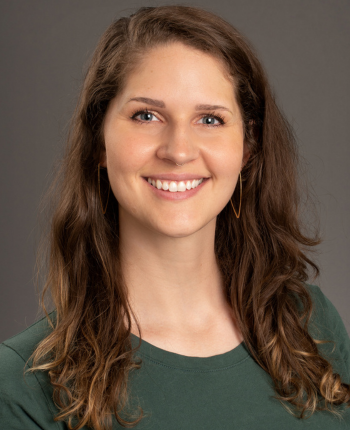
Laci Whipple (she/her) – Boise, Idaho
Laci Whipple is a graduate of Boise State University and Howard College. She is currently a master’s student in the addictions counseling program at Boise State University.
After graduation, Laci intends to serve children/adolescents, racial minorities, and the sexual and gender minority communities. She would also love to work with an atypical population of heterosexual cisgender men in the context of their minority status within the eating disorder population, specifically because of what the research says about their increasing risk for comorbid psychiatric, substance use, and eating disorder diagnoses, and their aversion to getting help due to stigma. Her commitment to providing mental health services to underserved communities will impact not only the Boise State University campus and the city of Boise but the entire state of Idaho. Much of Idaho’s population lives in rural areas where mental health services and resources are lacking. Earning this fellowship will support her work in establishing an eating disorder prevention and body image program on the Boise State University campus, implementing evidence-based practices to better serve these populations, and doing so through a counseling and social justice lens.
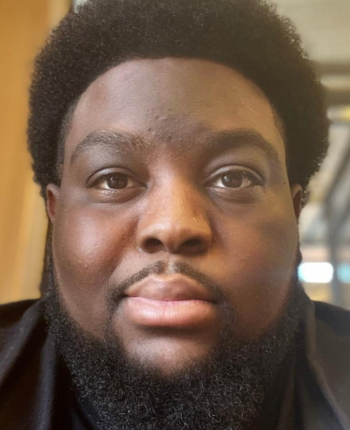
Kyle Jamal Woods (he/his) – Rosenberg, Texas
Kyle Jamal Woods is a graduate of the University of Mary Hardin-Baylor. He is currently a master’s student in the addiction counseling program at Texas Tech University Health and Science Center.
Upon graduation, Kyle intends to establish a clinic within his community to work with individuals who struggle with substance use and mental health disorders and plans to reach marginalized individuals and help those stigmatized by society. He is currently working to become a well-rounded mental health professional through his work with the Assisted Outpatient Treatment program (AOT) within The Harris Center for Mental Health and IDD as a mental health clinician. The AOT program specializes in clients who struggle with rehospitalizations due to unaddressed symptoms. Kyle’s ultimate scholarly goal is to use his double major in criminal justice and psychology and his master’s in addiction counseling to become a National Certified Counselor (NCC), Master Addictions Counselor (MAC), and Licensed Professional Counselor-Mental Health Service Provider (LPC-MHSP). This fellowship will allow Kyle to further enhance his abilities as a helping professional and establish lifelong partnerships with like-minded intellectuals.
